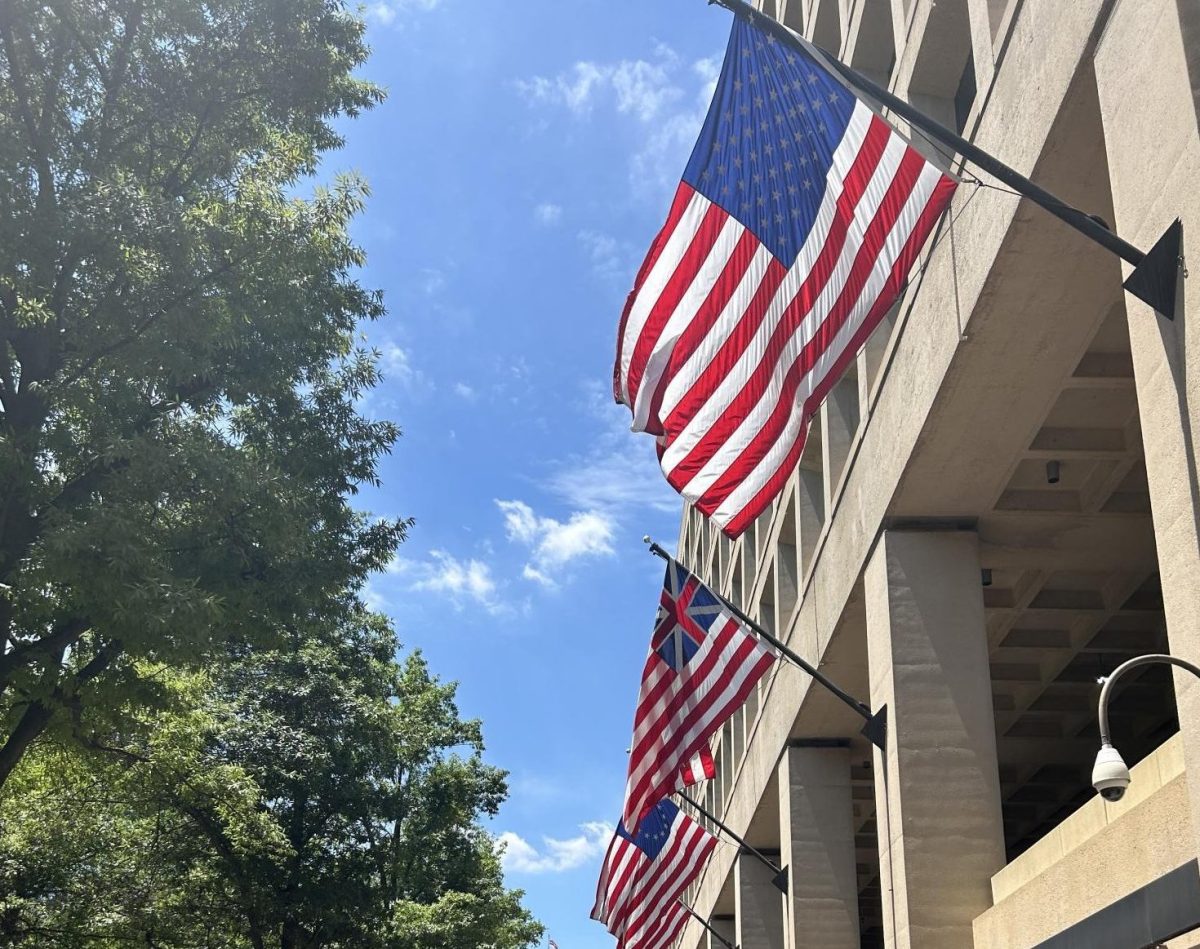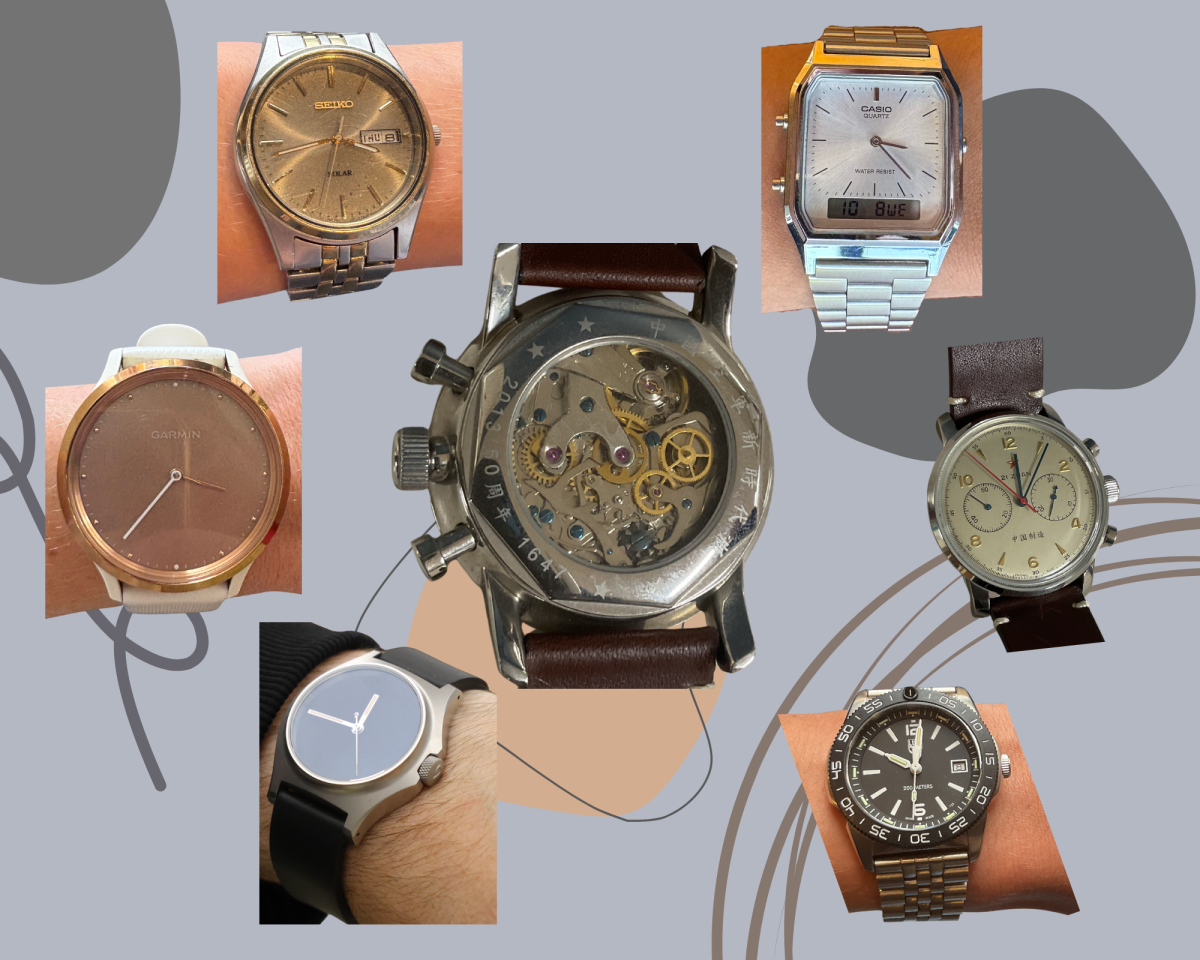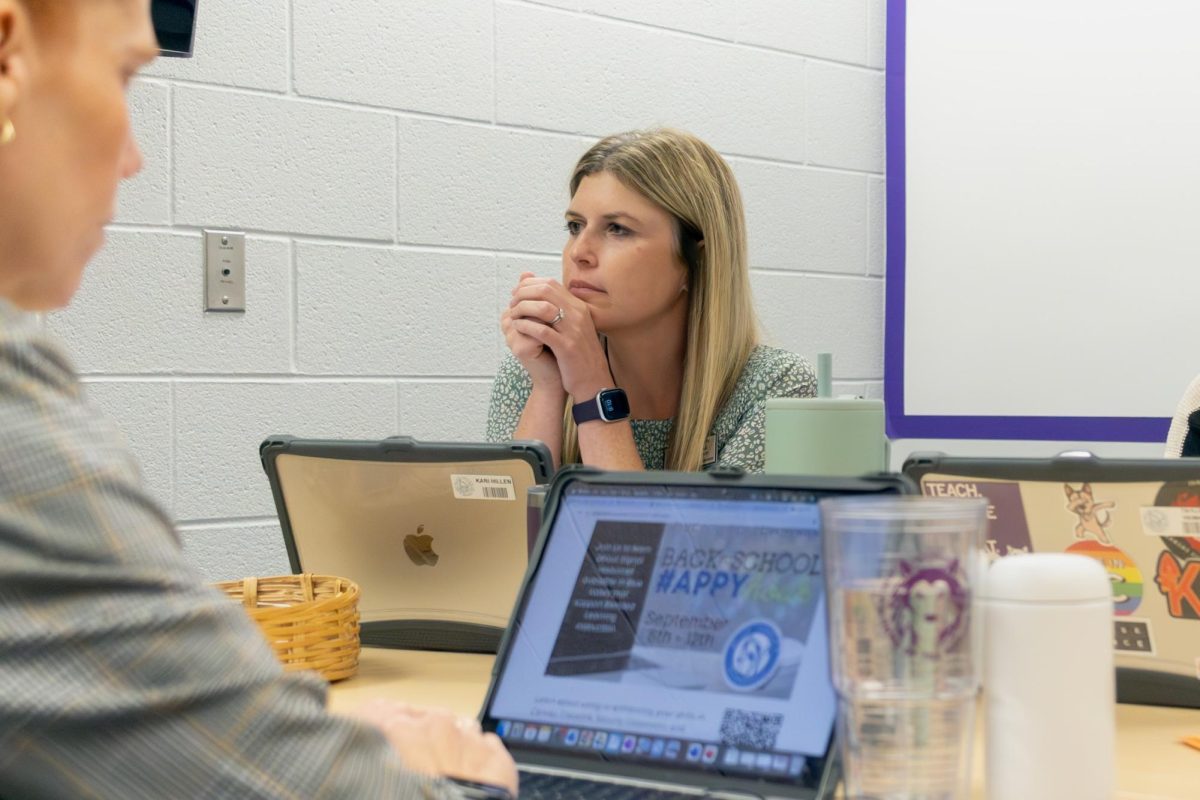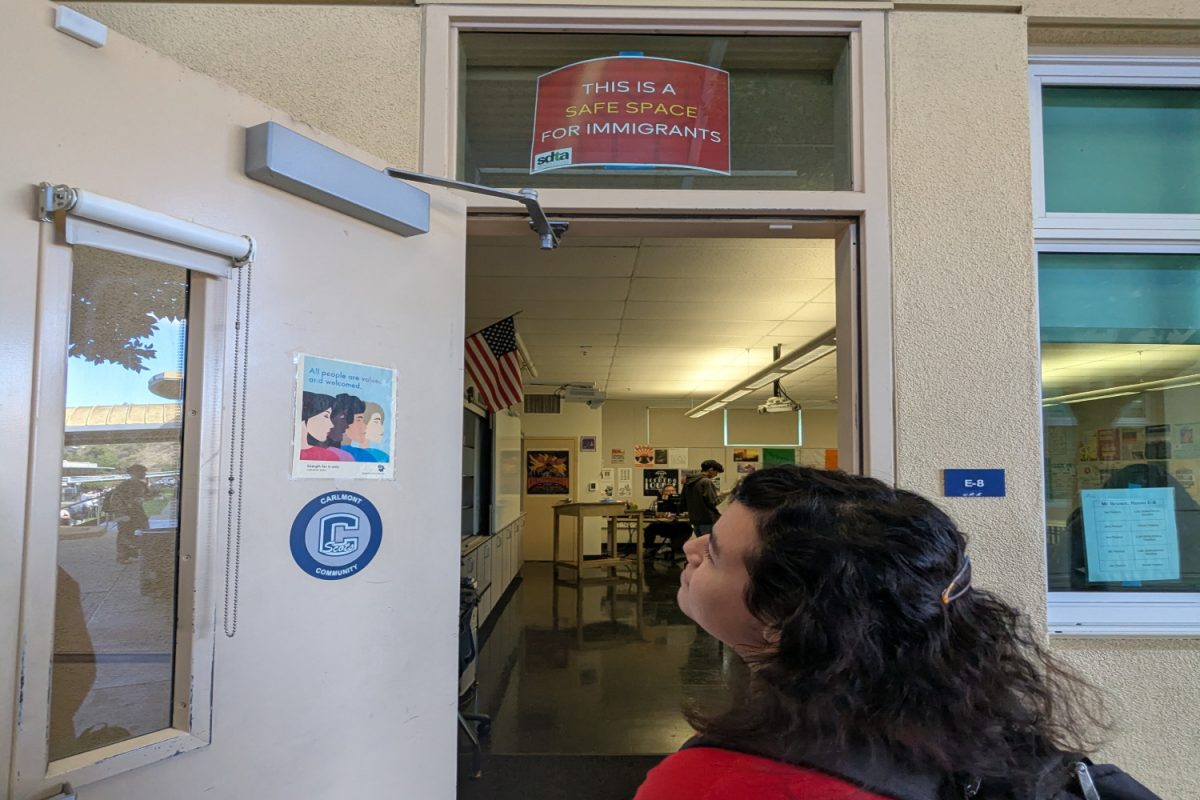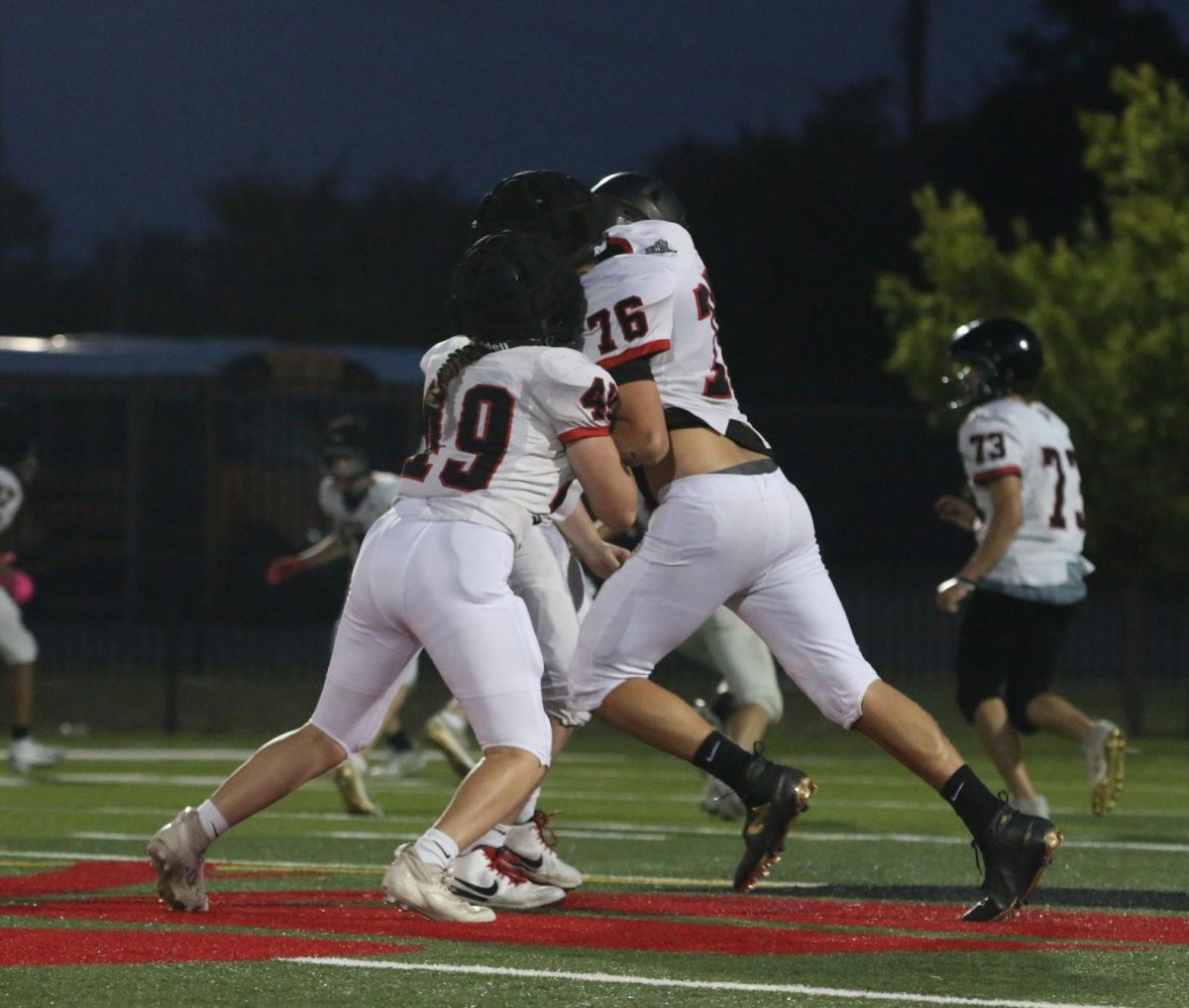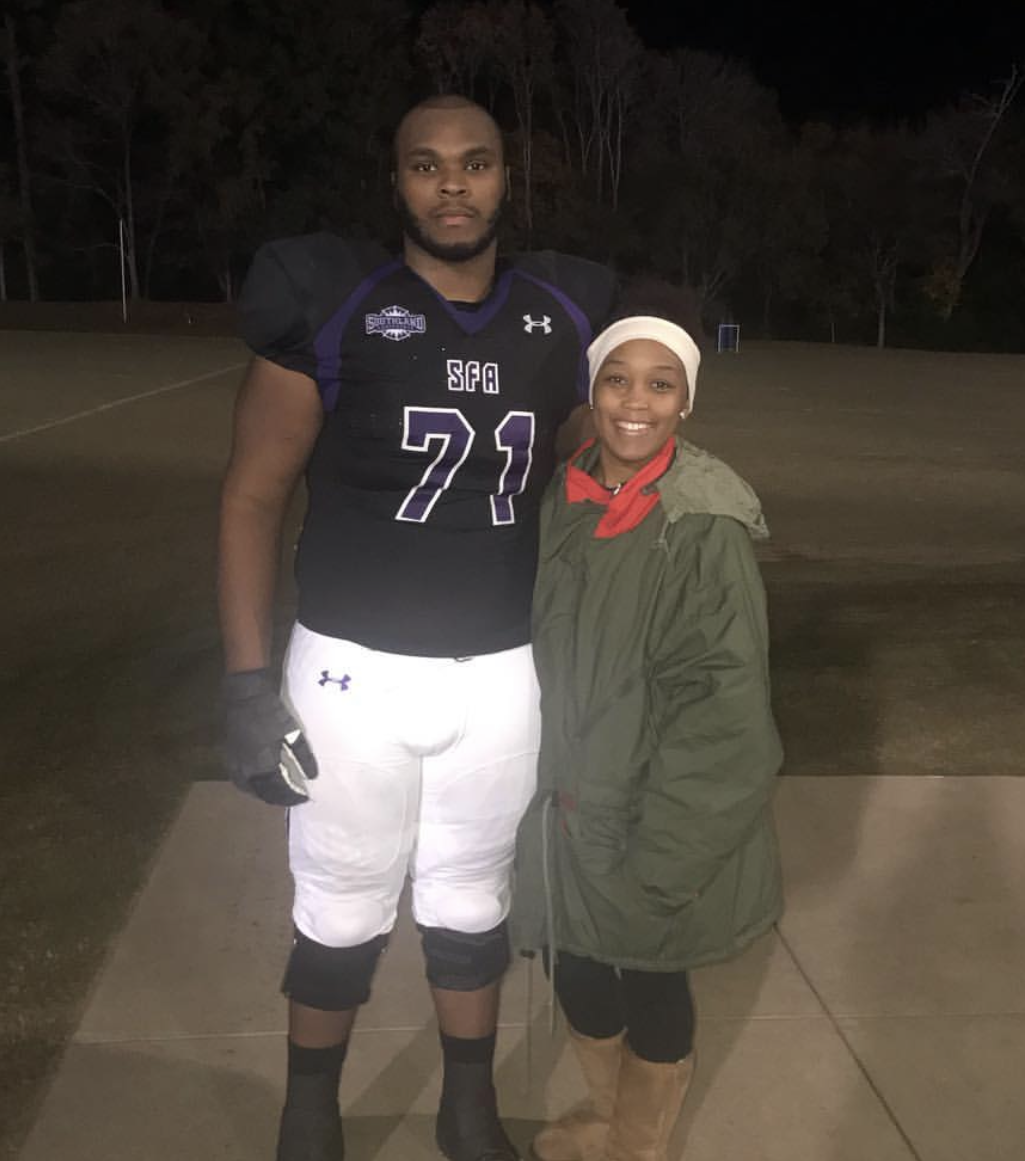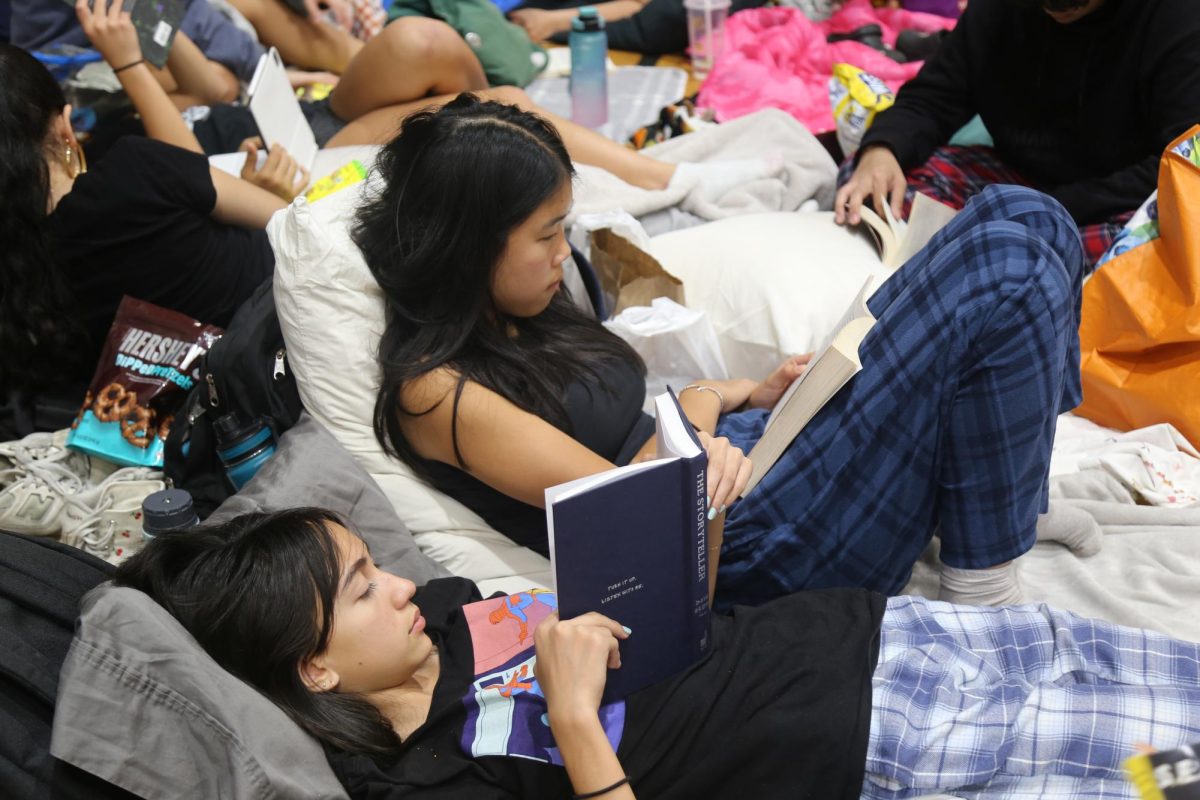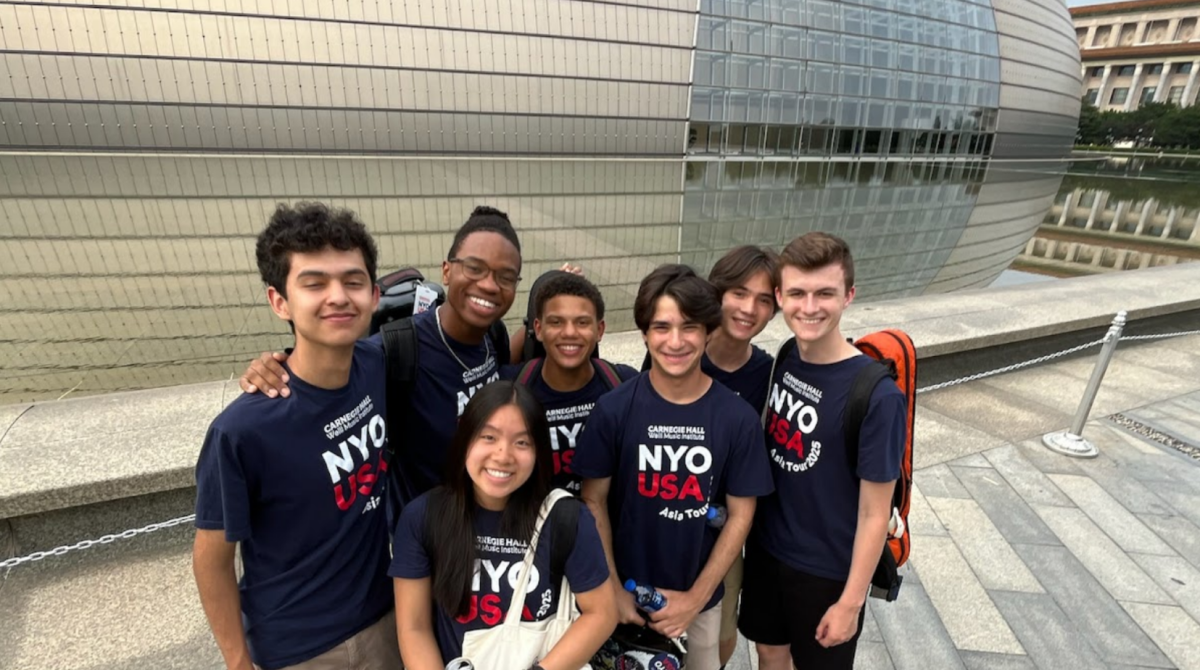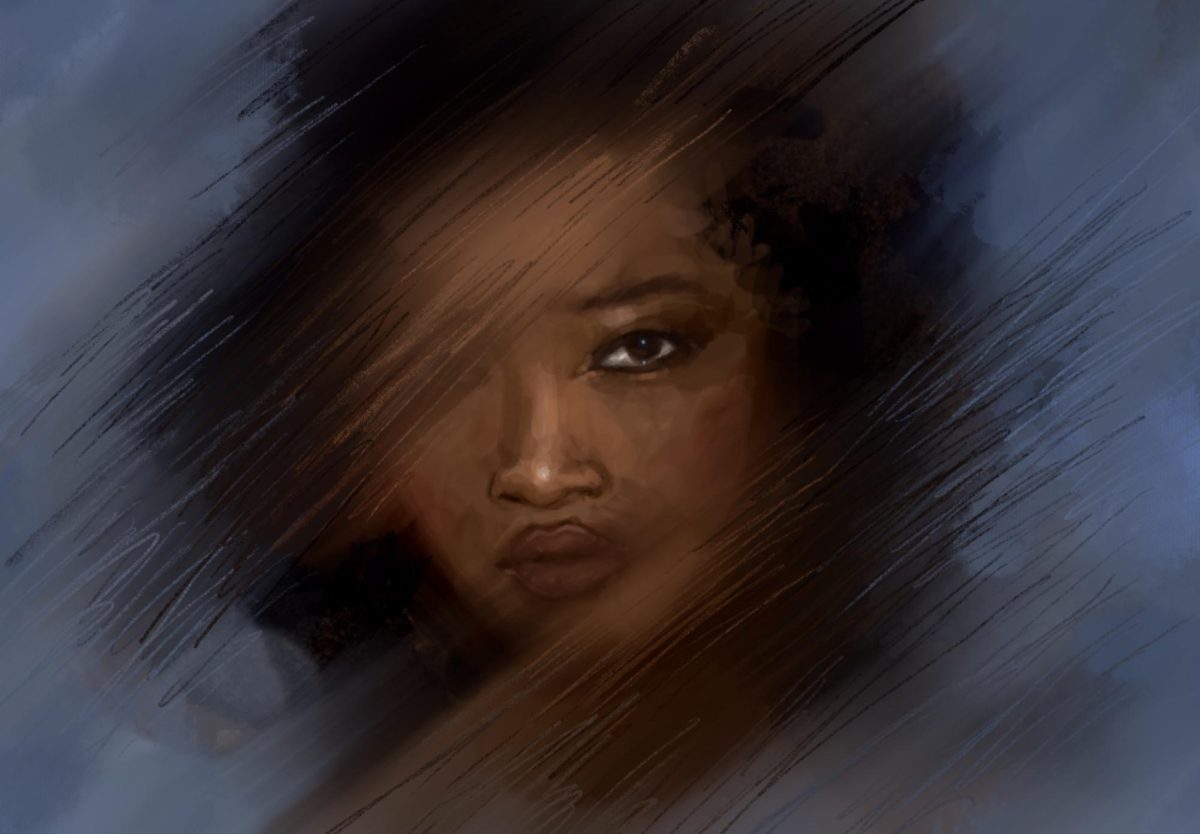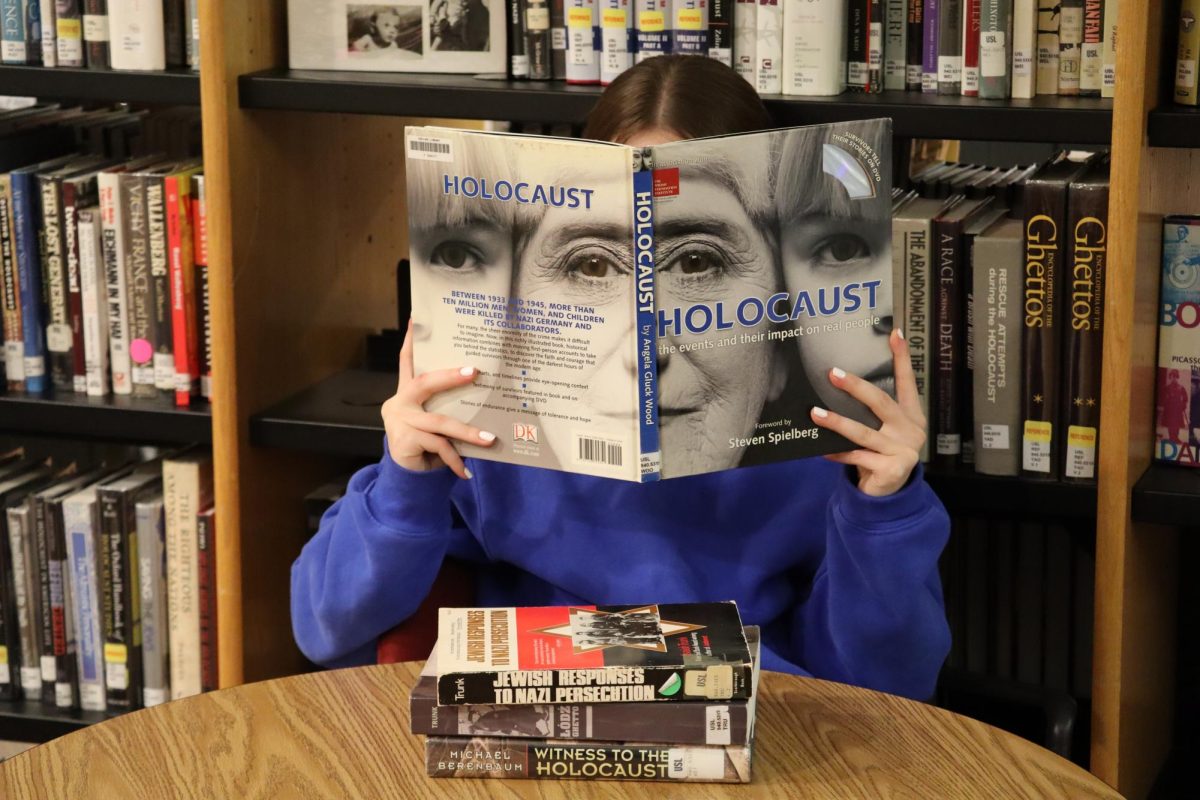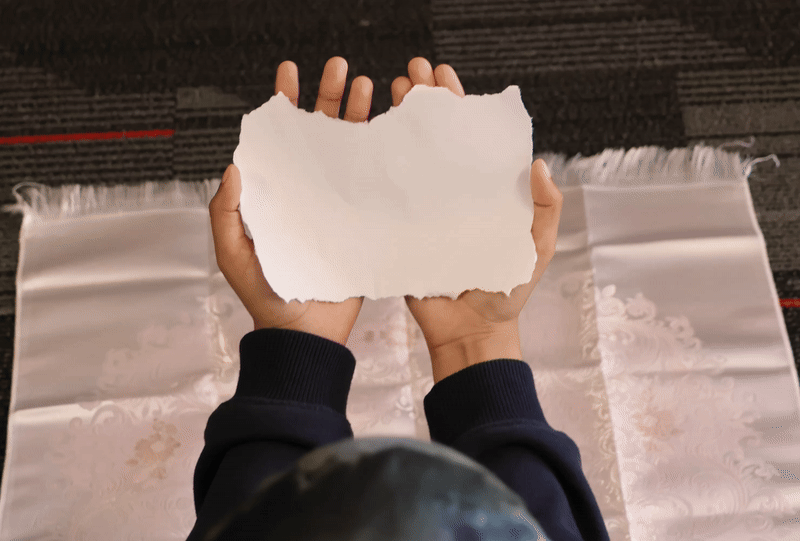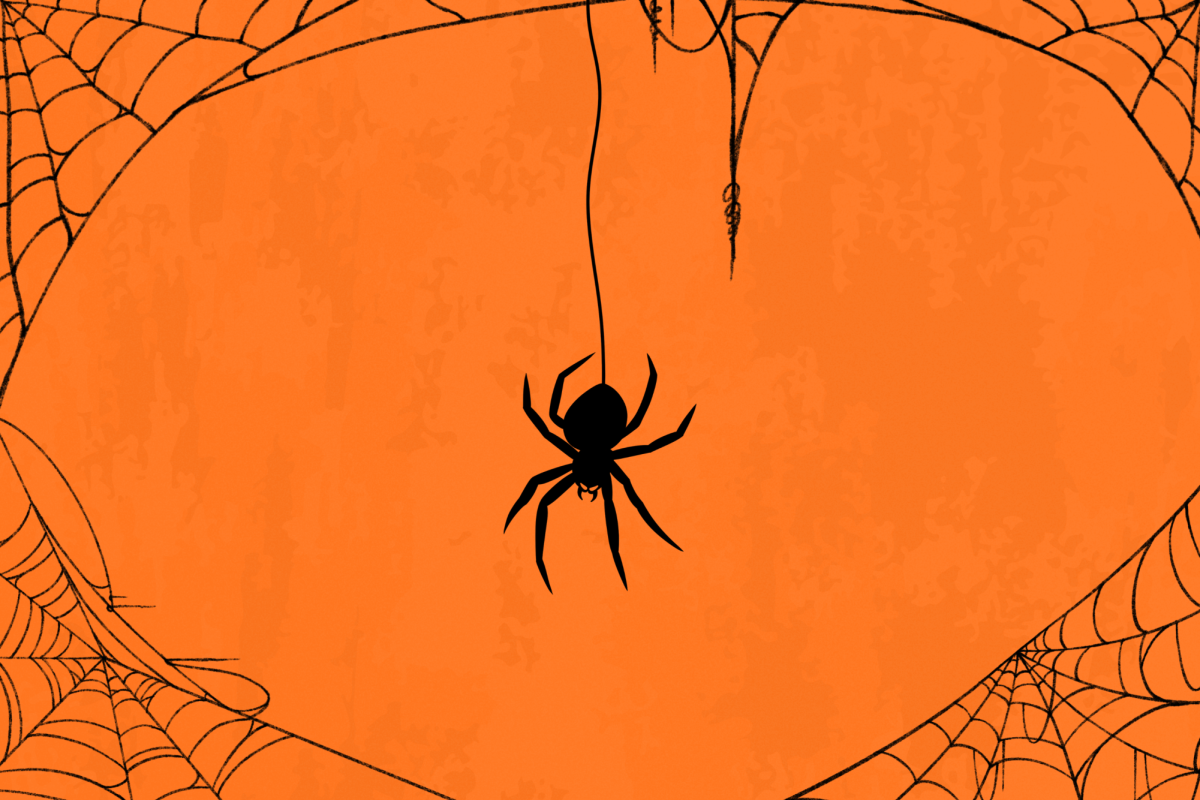In both Los Angeles and Israel, whether they went out to rejoice in the holiday or stayed in, everyone agreed that this year’s Simchat Torah celebrations were the exact opposite of what they were expected to be.
For those in Israel, Simchat Torah 2023 – the last day of the weeklong holiday of Sukkot, two months ago today – was a day that began with waking up at 6:30 a.m. to Red Alert sirens, running to bomb shelters, and in some places, hundreds of gun-wielding terrorists from Gaza committing atrocities in their towns. What would have been a triple holiday, with Shabbat, Simchat Torah and Shemini Atzeret all on the same day, instead became a day of shock and mourning for all Israelis, as news of the murdered and kidnapped in Southern Israel quickly spread across the country and beyond.
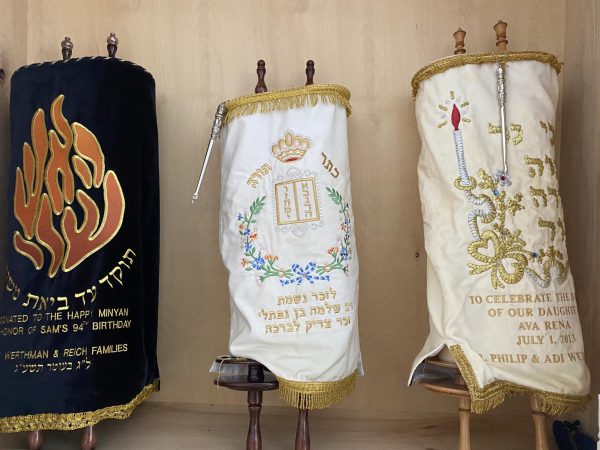
In Los Angeles, where Simchat Torah wasn’t starting until the night after the attacks, Shalhevet students were faced with a decision of whether to stay home or go out, wondering whether they were risking their safety in a possible antisemitic attack tied to the Israel-Hamas war.
It was also a struggle for both countries’ observant Jews to get any information on what had happened in Israel, since using electronics is forbidden by Jewish law on those days.
Senior Rachel Blumofe took extra safety precautions when she left the house that night and felt that there was always the possibility that some kind of attack could happen.
“I was told to bring pepper spray with me by my parents because even in the place I’d grown up in my whole life, there was a chance I could be attacked,” said Rachel.
Instead of walking on the street of Pico Boulevard, which is typically a hotspot for Simchat Torah night walking and celebrating, Rachel went straight to a friend’s house after a Shalhevet school-wide event at Rabbi Schwarzberg’s house. This event had security out front and only let in Shalhevet students.
Shalhevet junior Ariel Shapiro did go out with friends, even after hearing what had happened in Israel. He also wasn’t worried about his safety since everywhere he looked he saw some form of security. Ariel said that last year on Simchat Torah, the entire street of Pico was packed with celebrating Jews, but this year almost everyone was inside, and the vibe was different.
Ariel had heard about the attack when he was eating Shabbat dinner at a friend’s house the night before with two IDF (Israel Defense Force) soldiers present.
“They immediately got up from the dinner and left to get on an emergency flight back to Israel,” said Ariel.
Freshman Marielle Bitran also went out on Simchat Torah night but recognized how fortunate she was to do so.
“I still felt sad,” said Marielle. “Israel is going through a tough time and we’re living our lives like they’re perfect and like everything is normal.”
Marielle also said that she didn’t once feel unsafe on that night.
In Israel, it was much worse.
Uri Demb, a junior at the Shalom Hartman Institute who was born and raised in Jerusalem, said that the first siren in Jerusalem was at 8:30 in the morning, followed by his mother turning on her phone to check the news, which his family doesn’t normally do on Shabbat. They quickly realized how serious the attack was.
In the United States, Shemini Azeret this year was on Shabbat, from Friday evening to Saturday night, and Simchat Torah followed, from Saturday night through Sunday. In Israel, many Jewish holidays – including Simchat Torah – are only one day, while outside of Israel, these holidays are two.
Uri said that although the evening before, they still got to celebrate Simchat Torah, the day after did not feel anything like the joy and partying he is used to on this holiday.
“The story of terrorists getting into Israel and murdering families – it’s unheard of,” said Uri in an interview via WhatsApp.
According to the IDF, 2,200 rockets were fired into Southern and Central Israel on that day, targeting southern kibbutzim – communities that are known for their communal lifestyle powered by agriculture – and major cities like Tel Aviv and Jerusalem.
In Ra’anana, a suburb north of Tel Aviv, Yonatan Cosmin did not think much of the attack when the first sirens went off but was then frightened when he found out that terrorists had infiltrated the border and abducted civilians.
“When I heard that people were kidnapped, that was really scary,” said Yonatan, a sophomore at Ra’anana’s Science and Technology School. “After that, I was still trying to be happy, but it felt different from that point on.”
After the attack, Yonatan’s three brothers were called into reserves and are now fighting in the war. Although he’s scared, Yonatan said that he actually feels safer in Ra’anana compared to other cities in Israel.
“It feels like I’m in a bubble,” said Yonatan. “This is like one of the quietest cities in Israel, so we barely get bothered by any rocket alarms. But with my friends outside of Ra’anana, they’re having a worse experience.”
He said he loves Simchat Torah but that it was hard for him to feel its spirit during this time. And he missed one of his favorite activities – hakafot, dancing with the Torah – in people’s homes.
“In my school, we go out with Torah scrolls, and do hakafot at the houses of old people or those who aren’t able to go out, and they love it, it makes them so happy,” said Yonatan. “However, this year we could not do this, because of the war.”
For Shalhevet alumni taking a gap year in Israel, this was their first encounter with war ever.
Elijah Stern ‘23 is studying at Yeshivat HaKotel this year, a half-American and half-Israeli yeshiva in the Jewish Quarter of the Old City of Jerusalem.
On Simchat Torah, he said, the second the sirens went off, everything changed.
Many of the Israelis, both students and teachers, were told to turn on their phones to check if they were called up to fight in the war.
“Since that day, most if not the majority of the Israelis were called up as reserves in the army,” said Elijah. “All of our learning now is relating to the war, with our chayalim [soldiers] in mind.”
Olivia Fishman ‘23 is spending her year at the Midreshet Lindenbaum, a seminary in Jerusalem. Her parents had come to visit for Sukkot, and when the sirens went off she was lying in bed at the Orient Hotel.
She stayed there for a few minutes because she wasn’t sure whether what seemed to be happening actually was.
Then, she said, instead of everyone being happy and excited to celebrate Simchat Torah, the country felt like it was in mourning.
“I was in and out of the bomb shelter all day,” said Olivia. “It was the weirdest Simchat Torah of my life. Everyone was confused, and the entire hotel was filled with people who were in shock and devastation.”
Olivia also said that she had never seen a country go from so divided to so unified so fast. Once the first sirens went off, all anyone could care about was how they could help. Like many others in Israel, Olivia and her friends from the seminary volunteered by helping mothers whose husbands were at war and by making meals for 12 different families.
Before the war started in Israel, large protests were happening across the country over judicial reforms created by Prime Minister Benjamin Netanyahu’s coalition government. These reforms aim to remove the Supreme Court’s power to nullify government decisions.
A part of these protests was for military personnel to not report for duty. However, after Hamas launched the first rockets, that idea was quickly buried.
According to ABC News, around 360,000 Israeli reservists have been called back to fight, from both Israel and abroad, the most ever in Israeli history.
According to the IDF and Israeli officials, as of Nov. 30 at least 1,600 Israelis have been killed – 401 of them being soldiers in IDF operations against Hamas since the attacks – and over 6,900 have been injured.
The question of how to celebrate was one faced in both locations. In a Google Forms survey conducted by the Boiling Point, out of 57 responses, 84.2% said that they went out on Simchat Torah night, with 41.2% hesitating before doing so. Eighty percent also said that this year’s holiday felt significantly different than in the past.
Rachel Blumofe said that she was touched by a speech given at the event by Rabbi Yagil Tsaidi, whom she described as a normally cheerful person. Rabbi Tsaidi talked about how to stay safe on a night like this and how to balance celebration while still feeling compassion for those who have lost their lives.
On the other hand, senior Tali Libenthal, who has family all over Israel, heard about the attack at shul that morning and stayed home that night at the request of her parents.
“They were worried that there would be some kind of uprising or danger, that there would just be an antisemitic attack,” said Tali.
There were also those who were hesitant about going out but ended up doing so anyway.
“For a second I thought to myself, should I go out or should I stay home?” said sophomore London Brakha. “But then at shul, at Magen David, one of the rabbis said that this is your Judaism and you celebrate it.”
London also said that he was getting weird looks while walking, which made him feel unsafe. In addition, he said that he had never seen a Simchat Torah with people who were so confused, anxious and worried.
In New York, senior Olivia Orbuch was visiting her friends and family during the holiday. In the middle of the celebration, the rabbi at her shul stopped everything to sing “Am Yisrael Chai,” which translates to “the nation of Israel lives.” This is what changed how she related the situation in Israel to the celebration at hand.
“The singing for Israel, it really struck me,” said Olivia. “The streets are usually just packed, like packed to the brim. Seeing them this year felt very different, as the number of people was much less.”
This story was originally published on The Boiling Point on December 7, 2023.


